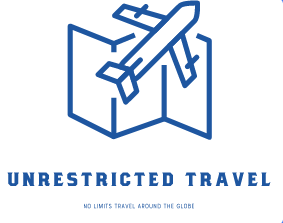A new variant of the Ebola virus has risen to the top of the global health risks list, and more countries are implementing travel restrictions to prevent it from circulating. The virus has a very high transmission risk and has already spread to the Western Hemisphere. It can infect people from the United States, Europe, and Africa, and therefore the new variant is a major concern. However, travelers can still get the disease even if they are not traveling to an affected area. This means that if you have traveled to a high-risk country, you must double check for Ebola before entering.

The World Health Organization has issued an advisory against travelers from countries that have a large community outbreak of the virus. The advisory also applies to those who have not been vaccinated, are over 60, or have a history of the disease. Vaccines have not been proven effective against the new variant, and countries should only consider imposing them if there is a risk of exposure to the virus. For now, it is not recommended that you return from the affected area without a vaccination.
While the outbreak in the Netherlands has not spread widely, countries should consider implementing additional precautions. Travel restriction measures are aimed at preventing the disease from spreading to the region. Those who are traveling to the region should wear masks, keep confined areas ventilated, and practice good hand hygiene. As of Friday, the Netherlands and the UK imposed new travel restrictions based on the new variant. In the UK, there have been three cases and one case of Omicron in a returning traveler from Namibia.
As of the latest outbreak, the Netherlands has imposed new restrictions on travelers from southern Africa. In addition to the ban, the Dutch public health institutions picked up the variant and immediately began quarantining travelers who had recently traveled to that part of the world. This new variant has spread to more than 20 countries. The WHO has warned that the disease is extremely infectious and should be controlled before it can affect the general population. This is the most dangerous variant of the H1N1 virus.
The latest outbreak of the H1N1 virus has spread from southern Africa to the United States. At least eight countries, including South Africa, have been reported to have been infected with the variant. A travel ban from these countries to the US does not affect travelers who have recently traveled to those areas. The new strain is also present in more than 20 countries in the world. The WHO has urged all travelers to use protective masks when travelling to these countries.
In the meantime, countries are trying to contain the spread of the new variant of the H1N1 virus by adopting a multi-layered approach to mitigate it. While this approach is effective, it isn’t enough to ban international flights altogether. Instead, countries must prevent the spread of the virus by screening travelers and implementing quarantine measures to control its spread. In the meantime, the WHO is praising the public health institutions of South Africa for picking up the variant.
In the meantime, the new variant has spread to at least 12 countries, but the majority of cases have been in travelers returning from the region. In the Netherlands, 13 travelers from South Africa were tested and the outbreak was not very widespread. Although the new variant is less infectious than the beta strain, it poses a serious health risk to humans. In the meantime, the virus is spreading. Despite the fact that the variant is not yet known to affect humans, the disease will continue to grow.
The variant is spreading quickly and has spread to several countries. Many people have already been infected, and some are not aware they have it. A recent study in the Netherlands found that nine travelers from Africa had the variant. As the virus continues to spread, new restrictions are being enforced on travel to the region. The country also banned foreign travel to the region. The country is also suspending flights from certain countries until the virus is confirmed as a low-level outbreak.





